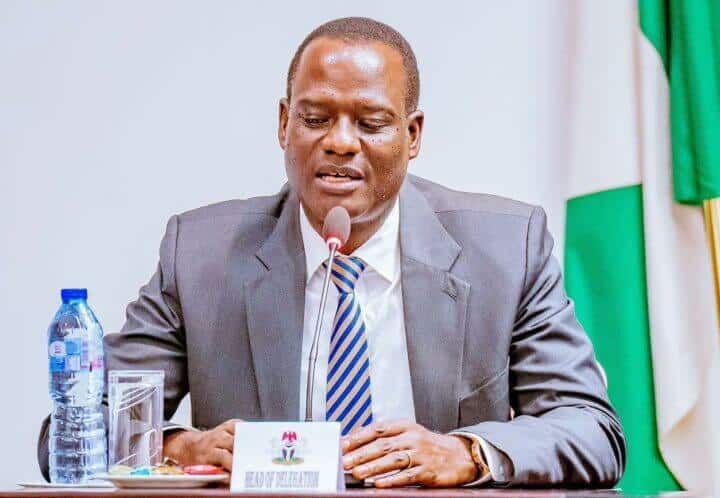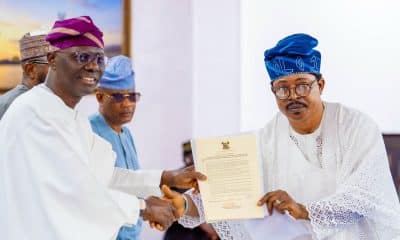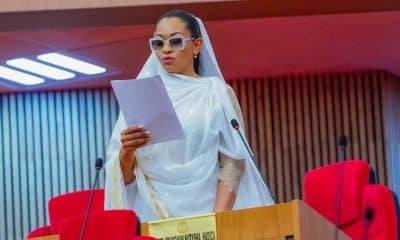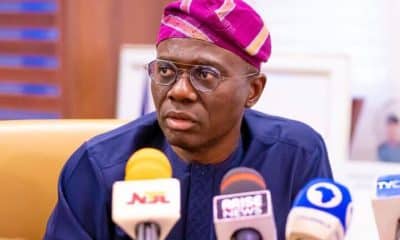Nigeria News
Tax Reform Bills: Governors Refused To See Us, Only Sanwo-Olu, Uba Sani Agreed To Meet – Oyedele

The Chairman of the Presidential Committee on Fiscal Policy and Tax Reforms, Taiwo Oyedele, has refuted claims that the panel failed to engage with Nigerian governors, revealing that the governors canceled four scheduled meetings with the committee.
Speaking during an appearance on Arise Television, Oyedele highlighted the extensive consultations undertaken by the committee, including physical meetings with over 120 Muslim clerics from the north and the League of Democrats, to explain the implications of the proposed tax reforms.
Naija News understands that this response follows allegations made by elder statesman and northern politician, Buba Galadima, on the same program hosted by Dr. Reuben Abati. Galadima claimed that the tax reforms favored Ogun and Lagos states, alleging the committee only consulted the Lagos State governor and ignored others. He further stated that some committee members disowned the report, accusing the chairman of making unilateral decisions.
Oyedele defended the committee’s composition and efforts, emphasizing its broad membership, which includes representatives from 20 government institutions, the private sector, and 45 students from 22 universities across Nigeria.
He also detailed the numerous engagements with various stakeholders, including finance commissioners, Internal Revenue Service (IRS) heads, manufacturers, SMEs, and FinTech representatives.
In addressing the governors’ lack of participation, Oyedele explained that the committee had written to six governors—one from each geopolitical zone—but was only able to meet with the Lagos State governor and the deputy governor of Kaduna State.
He criticized the governors for their lack of cooperation, revealing that the Governors’ Forum canceled four scheduled meetings and limited the committee to a brief 15-minute discussion during a late-night meeting.
Oyedele stressed the urgency of the reforms, citing the need to address Nigeria’s economic challenges swiftly and set the nation on a path to sustainable development.
He explained that the committee accelerated its work to ensure timely implementation, given the limited window for action within the government’s tenure.
He dismissed claims of unilateral decision-making within the committee, noting that all provisions were thoroughly debated, and votes were taken on contentious issues.
Oyedele also rejected allegations that committee members disowned the report, challenging critics to provide evidence to support their claims.
He expressed surprise that some critics were calling for the withdrawal of all four bills due to disagreements with a few provisions, urging a more constructive approach to resolving concerns.
Oyedele reiterated the committee’s willingness to engage with any group, citing productive discussions with various northern clerics and organizations as evidence of its commitment to inclusivity and transparency.
The introduction of the tax reform bills has sparked significant debates, particularly in northern Nigeria, where concerns have been raised about the potential reduction in Value Added Tax (VAT) allocations. Despite these concerns, the bills have been presented to the National Executive Council (NEC) and the Federal Executive Council (FEC) before being sent to the National Assembly.
The proposed reforms include the Nigeria Tax Bill 2024, the Tax Administration Bill, the Nigeria Revenue Service Establishment Bill, and the Joint Revenue Board Establishment Bill. These bills aim to restructure the nation’s tax system to promote fairness and efficiency. However, one provision proposing a derivation-based model for VAT distribution has been rejected by northern governors, traditional rulers, and other regional leaders.












